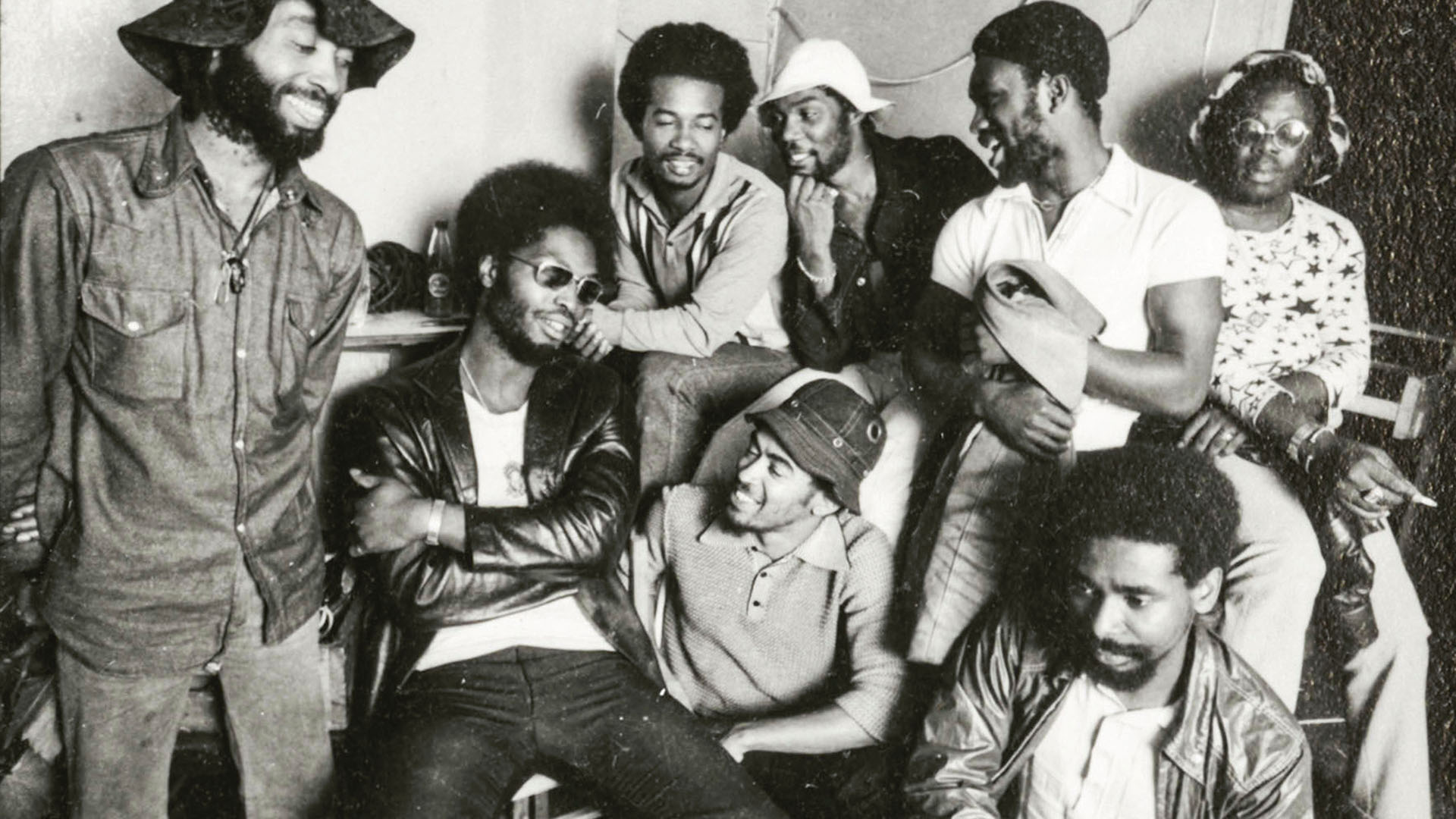Cymande is a groundbreaking British funk band that emerged in the early 1970s, celebrated for their innovative blend of Calypso, jazz, and soul that created a unique, spiritually charged sound. Despite facing challenges in the UK music scene, their influential tracks, like the iconic "Bra," have left an indelible mark on various genres and are now being rediscovered by new generations of fans.

Cymande is a pioneering black British band formed in the early 1970s, known for their unique fusion of musical styles that created a sound entirely their own. Their distinctive blend has been described as "spiritual, versatile, smooth, sweet and very different," with various attempts to categorize them using terms like Nyah-Rock, Afro-Rock, and Calypso Rock.

Cymande was formed over 40 years ago by Steve Scipio and Patrick Patterson, who grew up as neighbors in Balham, South London. The band originally consisted of nine self-taught musicians who had all emigrated to the UK from the Caribbean as children. The founding members came primarily from Guyana and Jamaica, bringing with them diverse musical influences.
The band's core members included:- Patrick Patterson - Guitarist and vocalist, who later became a lawyer when the band split- Steve Scipio - Bass player, originally from Guyana, who moved to Balham at age 12 and is credited with creating "some of the greatest basslines in music history"- Jimmy Lindsay- Michael Rose
.jpeg)
Cymande developed a sophisticated and deep funk style that was heavily influenced by:- Calypso rhythms- Jazz- African music- American Soul
Their unique sound set them apart from other funk acts of the early 1970s, with a level of sophistication that was ahead of its time. Their music was both political and spiritual in nature, addressing important themes while maintaining a distinctive groove.

The band was accidentally discovered by English producer John Schroeder in a Soho, London club where they were rehearsing. Schroeder had actually come to see a rock band, but that gig had been canceled. Upon hearing Cymande, he quickly signed them and recorded their initial single "The Message," which was released by Janus Records (a division of Chess Records).
"The Message" reached number 20 on the US R&B and Pop charts, setting the stage for their self-titled debut album in 1972.

Cymande released three acclaimed albums in quick succession:- Cymande (1972)- Second Time Round (1973)- Promised Heights (1974)
While they found significant success in the United States, becoming the first British band to perform at New York's legendary Apollo Theater and touring arenas and stadiums with Al Green, they faced considerable challenges in their home country.

Despite their success in America, Cymande encountered significant prejudice in the UK music industry, which showed little interest in promoting homegrown black talent. As Steve Scipio bluntly described it: "Total lack of interest. Had we been a white rock band returning to the UK we wouldn't have been ignored, and that impacted on our thinking at the time."
This lack of recognition and support led to the band's decision to split in 1975, with members like Patterson and Scipio pursuing careers in law.

Although Cymande disbanded in 1975, their music lived on through sampling and rediscovery by successive generations of artists and fans. Their work became influential across multiple genres:- Hip Hop- House- Drum and Bass- R&B- Rare Groove
Perhaps their best-known recording is the soulful dancefloor groove "Bra," which was later sampled by the American hip-hop group De La Soul. Their original albums remain widely sought-after by DJs and funk enthusiasts.

In recent years, Cymande has experienced a revival, with the band reuniting to tour the world and finding a new audience among younger generations who weren't even born when the group originally disbanded 40 years ago. This resurgence has allowed them to finally receive recognition as "the most important black British group of their generation."
The band's story has also been documented in film, with a music documentary detailing their life and stories, helping to cement their legacy and introduce their pioneering work to new audiences.
